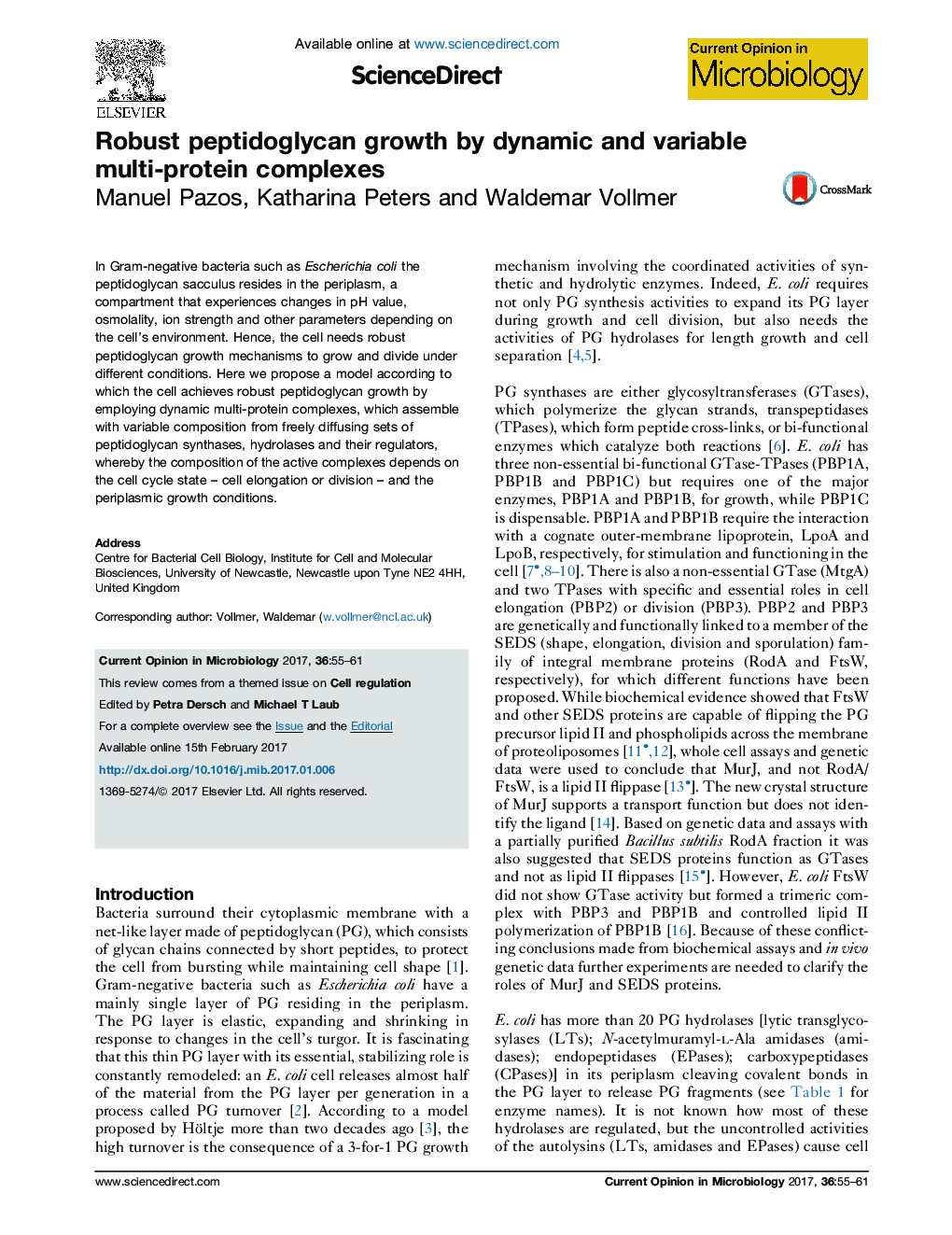| Article ID | Journal | Published Year | Pages | File Type |
|---|---|---|---|---|
| 5671748 | Current Opinion in Microbiology | 2017 | 7 Pages |
â¢Dynamic peptidoglycan synthesis complexes enlarge the bacterial cell wall.â¢These complexes are guided by cytoskeletal elements.â¢Synthases and hydrolases are regulated by multiple interactions.â¢Activities and interactions are affected by the variable conditions in the periplasm.â¢The composition of the complexes depends on the growth conditions.
In Gram-negative bacteria such as Escherichia coli the peptidoglycan sacculus resides in the periplasm, a compartment that experiences changes in pH value, osmolality, ion strength and other parameters depending on the cell's environment. Hence, the cell needs robust peptidoglycan growth mechanisms to grow and divide under different conditions. Here we propose a model according to which the cell achieves robust peptidoglycan growth by employing dynamic multi-protein complexes, which assemble with variable composition from freely diffusing sets of peptidoglycan synthases, hydrolases and their regulators, whereby the composition of the active complexes depends on the cell cycle state - cell elongation or division - and the periplasmic growth conditions.
